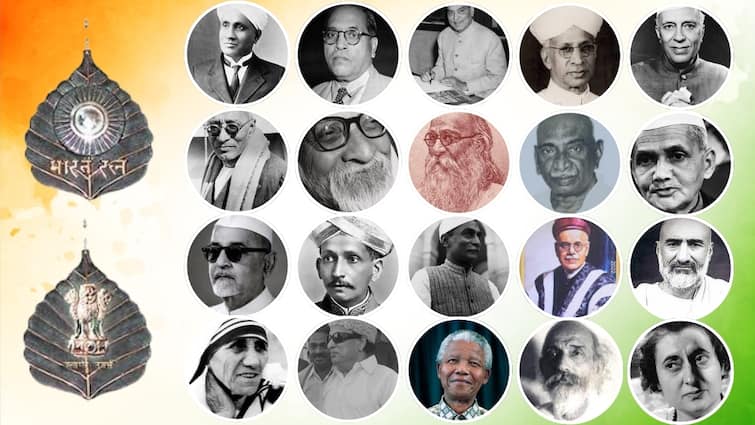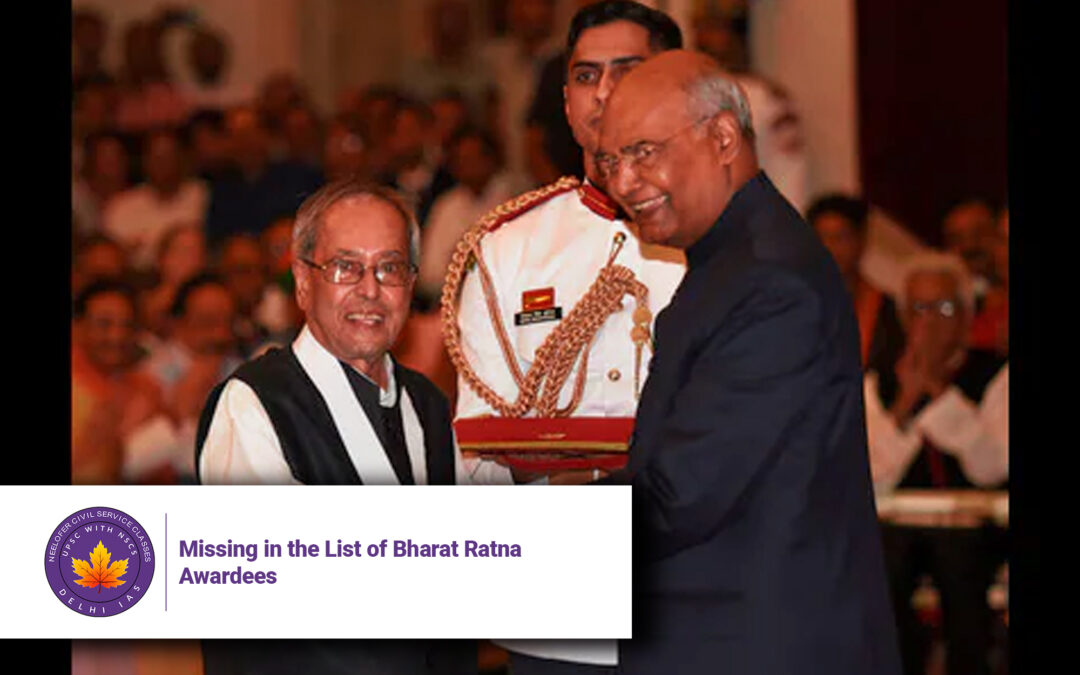Missing in the List of Bharat Ratna Awardees
Why in News?
A recent thought-provoking opinion piece by senior journalist Karan Thapar has reignited debate around the selection process and omissions in conferring India’s highest civilian honour, the Bharat Ratna. His editorial criticizes the pattern of posthumous awards, political bias, and highlights key personalities who, in his view, deserve the recognition but have been repeatedly overlooked. 
Introduction
The Bharat Ratna, instituted in 1954, is India’s most prestigious civilian award, conferred for exceptional service in fields such as arts, literature, science, public services, and more recently, any field of human endeavour. Over the decades, the award has celebrated some of India’s most iconic personalities. However, questions about meritocracy, political favoritism, and missed recognitions continue to surface—especially with the absence of globally respected figures such as Field Marshal SHFJ Manekshaw and the 14th Dalai Lama from the list.
Key Issues
1. Politicization of the Bharat Ratna
-
Of the 53 recipients so far, around 31 have been politicians—nearly 60 percent.
-
Many of these awards, especially those given to political leaders, have often been criticized as motivated by loyalty or political convenience rather than genuine national service.
-
Names like Rajiv Gandhi, Morarji Desai, Pranab Mukherjee, LK Advani, and Chaudhary Charan Singh reflect this tilt. While many may have made significant contributions, the large number indicates a possible skew.
2. Posthumous Recognition
-
18 out of 53 awardees have received the Bharat Ratna posthumously.
-
Examples include Sardar Vallabhbhai Patel, who was awarded 41 years after his death; BR Ambedkar and Maulana Azad, both awarded over three decades after their passing; and Madan Mohan Malaviya, awarded 69 years after his death.
-
This raises the question: If these personalities were deserving, why not recognize them during their lifetime?
3. Overlooked but Deserving Personalities
-
Field Marshal SHFJ Manekshaw: India’s greatest military commander, who led the country to victory in the 1971 war. Despite holding the prestigious rank of Field Marshal, he has not been awarded the Bharat Ratna.
-
The 14th Dalai Lama: A globally celebrated spiritual leader and Nobel Peace Prize laureate (1989). He has lived in India since 1959 and considers it his home, yet his contribution remains unrecognized by the Indian state. The piece questions whether this is due to fear of offending China.
-
Amitabh Bachchan: An acting legend still alive and active. Despite decades of unmatched influence in Indian cinema, he is yet to be honoured with the Bharat Ratna. Thapar compares him to awardees like Satyajit Ray and Lata Mangeshkar, suggesting his omission is glaring.
Alternative Approaches
-
Merit-Based Recognition: Reestablish the credibility of the Bharat Ratna by ensuring it is awarded strictly on merit and lifetime contribution, not political lineage or timing.
-
Timely Recognition: Prioritize honoring individuals during their lifetimes to show genuine national gratitude.
-
Balanced Representation: Ensure diversity of fields—arts, science, military, social service—are fairly represented, instead of heavy focus on politics.
Challenges and the Way Forward
-
Political Influence: Government discretion in award selection continues to be opaque, leading to allegations of bias.
-
Lack of Clear Criteria: Absence of a codified evaluation process or independent jury makes the process vulnerable to manipulation.
-
Diplomatic Sensitivities: Concerns about offending foreign governments—like China in the case of the Dalai Lama—could influence decisions, even when national interest supports otherwise.
Way Forward:
-
Establish a transparent and independent selection committee.
-
Set a clear timeline and criteria for nominations and selections.
-
Introduce public nomination mechanisms with expert evaluations.
-
Recognize global icons who have represented India or contributed meaningfully to the country’s image.
Conclusion
Karan Thapar’s article is a stark reminder that the Bharat Ratna should not be reduced to a political tool or posthumous consolation. It should stand as a timely, unbiased, and prestigious recognition of India’s greatest contributors. Names like Field Marshal Manekshaw, the Dalai Lama, and Amitabh Bachchan are not just deserving; their omission from the list raises serious questions about fairness, priorities, and the purpose of the award itself. India must correct these oversights before time takes away the opportunity to do so.
5 Questions and Answers
Q1. What is the main concern raised in Karan Thapar’s article?
A1. The article questions the Bharat Ratna’s credibility due to political bias, posthumous awards, and omission of deserving figures.
Q2. Who are the key individuals highlighted as overlooked for the Bharat Ratna?
A2. Field Marshal SHFJ Manekshaw, the 14th Dalai Lama, and actor Amitabh Bachchan.
Q3. What proportion of Bharat Ratna recipients have been politicians?
A3. About 60 percent (31 out of 53 recipients).
Q4. Why is the Dalai Lama’s omission controversial?
A4. Despite his global recognition, Nobel Peace Prize, and residence in India, he has not been honoured—possibly due to fears of offending China.
Q5. What solution does the article suggest to improve the Bharat Ratna selection process?
A5. Transparent criteria, independent selection committees, and timely merit-based awards without political influence.



